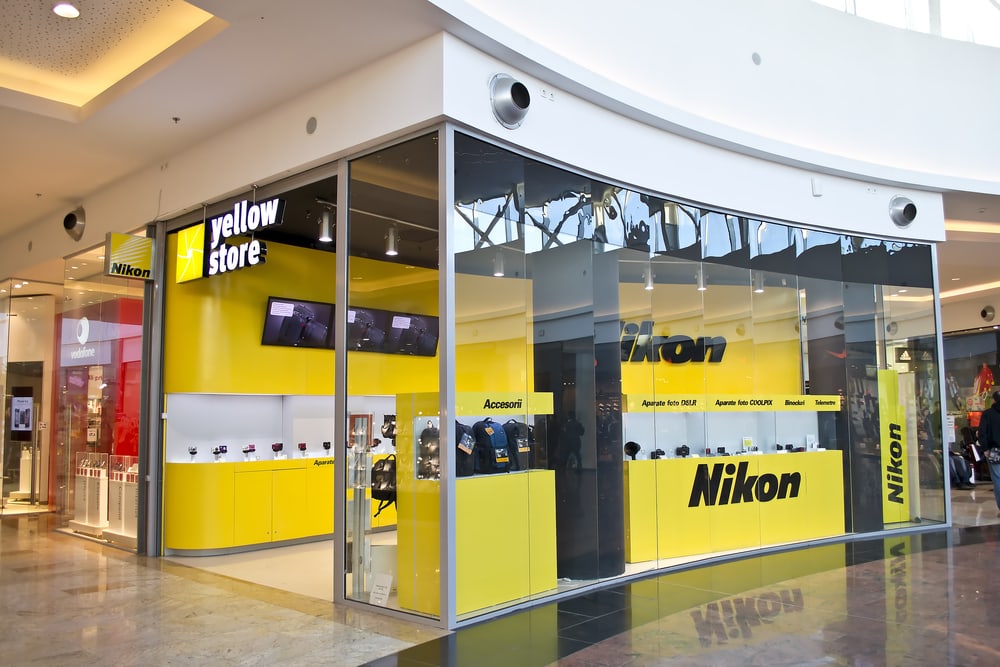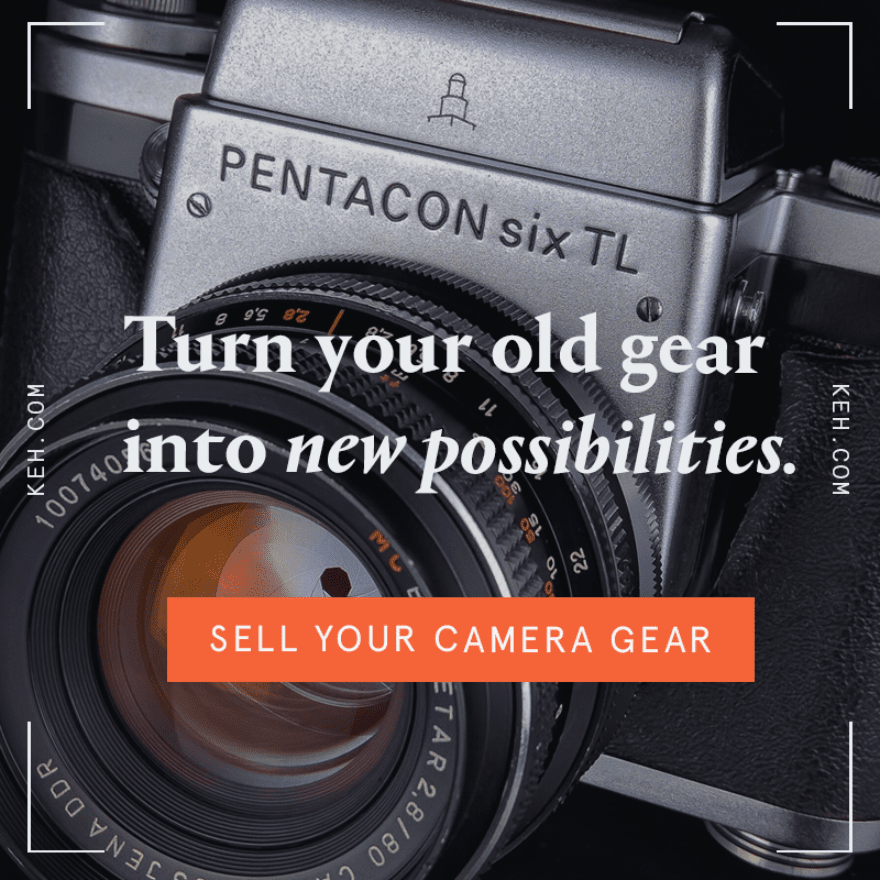Nikon might not get as much love as Sony or Canon, but there was a time when Nikon was the best camera company in the business. Let’s see how well their lenses hold up after all these years.
What should you look for in the best Nikon lenses? We picked the Nikon NIKKOR Z 58mm f/0.95 S Noct lens as the clear leader of the pack, but there are 7 other great options to choose from!
Here are the 8 best Nikon lenses and why you should consider each one.
Here Are The Top 8 Lenses for Nikon Cameras!
- Nikon NIKKOR Z 58mm f/0.95 S Noct Lens: Best Overall Nikon Lens
- Nikon AF-S NIKKOR 24-70mm f/2.8E ED VR Lens: Best FX Lens for DSLR
- Nikon AF-S DX NIKKOR 18-300mm f/3.5-6.3G ED VR Lens: Best DX Lens for DSLR
- Nikon NIKKOR Z 24-120mm f/4 S Lens: Best FX for Mirrorless (Z lenses)
- Nikon NIKKOR Z DX 16-50mm f/3.5-6.3 VR Lens: Best DX for Mirrorless (Z lenses)
- Nikon NIKKOR Z 24-50mm f/4-6.3 Lens: Best Budget Friendly Nikon Lens
- Nikon NIKKOR Z 50mm f/1.8 S Lens: Best Prime Nikon Lens
- Nikon NIKKOR Z 24-70mm f/2.8 S Lens: Best Nikon Lens for Video
1. Nikon NIKKOR Z 58mm f/0.95 S Noct Lens: Best Overall Nikon Lens
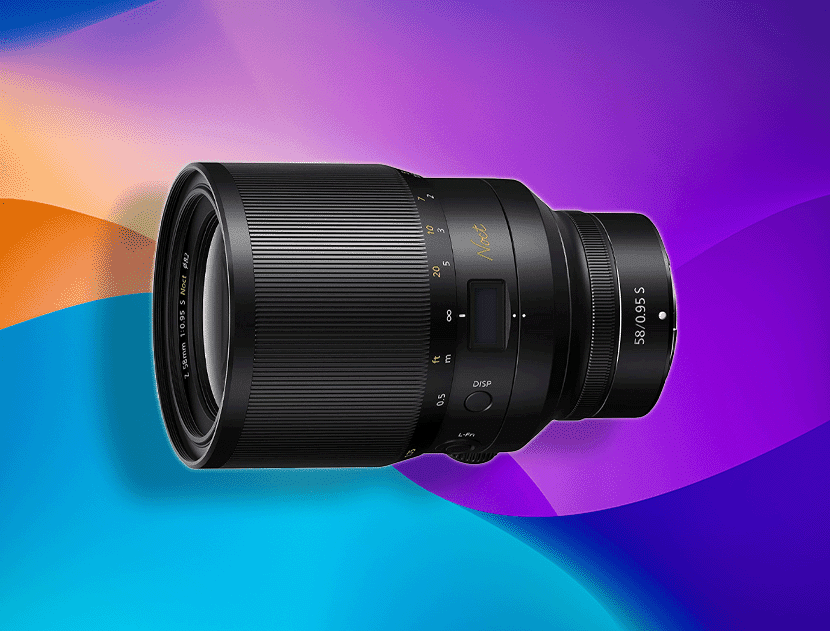
If you’re looking for the single best overall lens for Nikon, you have to shop their Noct brand.
The first thing you’re going to notice about this lens is that it has an f/0.95 aperture. This is one of the brightest apertures we’ve ever seen, and it lets you do some incredible work with your photography.
That bright aperture also combines with an 11-bladed diaphragm. This lens is going to be able to give you some of the best bokeh out there even considering lenses from big brands like Sony and Canon.
This lens also comes packed with all of the high-end features you’d expect to see from a flagship lens. It’s got 7 optical elements that help to reduce distortion and your photographs, and it’s got several coatings on the glass which should help protect the lens and your photographs.
This one also has plenty of high-tech features even though it doesn’t have an automatic focus.
This lens has an OLED display panel that allows you to see your settings at a moment’s notice. It also has a programmable button as well as a programmable control ring which gives you constant options when it comes to adjusting your settings.
The Nikon NIKKOR Z 58mm f/0.95 S Noct lens is one of the most impressive lenses that has ever been made, but that doesn’t mean it’s without its flaws.
This lens was designed for manual focus only. While this allows you to have greater control over your photographs, it’s not as good for individuals who have gotten used to automatic focus. This could be beginner photographers or working photographers and demanding and fast-moving fields where autofocus is a must.
This lens is also incredibly expensive. It cost nearly four times more than any other lens on his list. You’re definitely getting premium features for a premium price, but you’ll be easily spending triple the cost of a brand-new high-end camera on this lens.
If you’re willing to work with a manual focus-only lens that costs more than your camera, you will get one of the best lenses ever made.
Pros
- 7 optical elements
- ARNEO, Nano Crystal, and Fluorine Coatings
- Information OLED Panel, L.Fn Button, and Programmable Control Ring
- 11-bladed diaphragm
- f/0.95
Cons
- Manual focus design
- Extremely expensive
2. Nikon AF-S NIKKOR 24-70mm f/2.8E ED VR Lens: Best FX Lens for DSLR
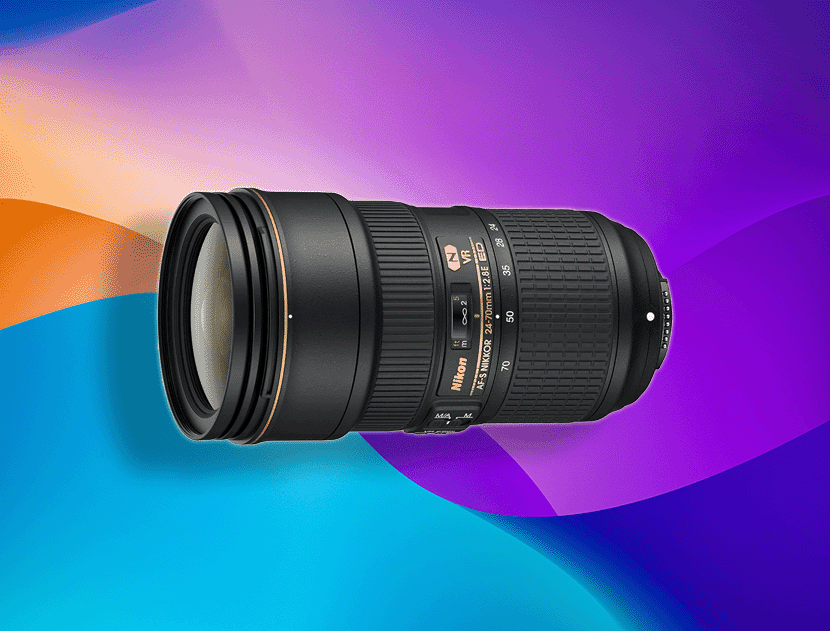
No list of the best Nikon lenses would be complete without a pick for FX DSLR cameras. This is one of the best Nikon FX lenses that has stood the test of time. Here’s why this lens still hits near the top of our list even after all these years.
There’s a lot to celebrate about this lens. The first thing that we should talk about is the fact that it’s going to have multiple coatings as well as several optical elements. This lens might be a little old, but it certainly isn’t cutting corners when it comes to protecting your images.
This lens also has a Silent Wave autofocus motor, a 9-blade diaphragm, and a very impressive aperture. This means we’ll be able to handle everything from portraits to street photography.
This lens is also a great professional lens. If you have a Nikon DSLR camera, and you’re looking to get paid for your photography, this is definitely not a bad lens to start with.
Now we need to talk about a few of the features that are holding this lens back.
The first thing that we need to talk about is the fact that DSLR lenses are now a little out of date. Mirrorless lenses are the new standard and this is just as true for Nikon as it is for other brands.
You’ll find that this lens is also missing a lot of the features that are now standard for mirrorless cameras. There are no programmable buttons and a lot of his stats feel a little out of date.
Nikon is likely to follow suit with the other brands and stop producing DSLR cameras in the near future. You’ll still be able to get years of use out of this lens, but it’s going to be increasingly behind the times.
This also plays into the price. You’re paying a premium price for a piece of technology that’s no longer cutting-edge. You can spend just a little bit more and get the equivalent lens for a mirrorless camera instead.
Even after all this, there’s a good chance that this lens will be able to last for years if not decades more.
Pros
- Four high-quality optical elements
- Multiple coatings
- 9-bladed diaphragm
- Silent Wave AF motor
- Electromagnetic Diaphragm Mechanism
Cons
- DSLR cameras are quickly becoming out of date
- Expensive for what you get
3. Nikon AF-S DX NIKKOR 18-300mm f/3.5-6.3G ED VR Lens: Best DX Lens for DSLR
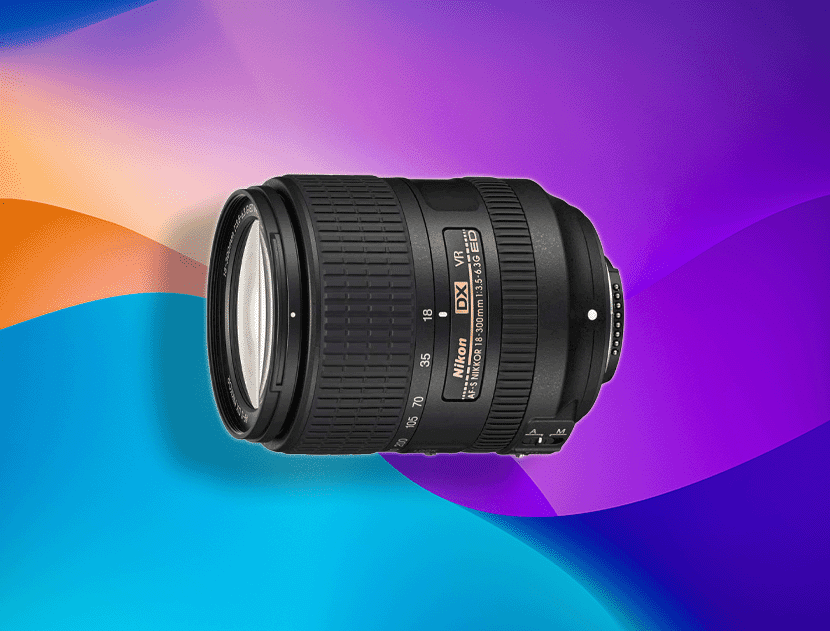
If you’re shooting on a crop sensor camera, you’re going to need one of the best Nikon DX lenses.
The Nikon AF-S DX NIKKOR 18-300mm is an interesting choice of lens. It’s definitely your single best pick for a Nikon lens for a crop sensor camera.
The first thing you’re going to notice about this lens is the extremely flexible focal length. 18 mm to 300 mm lets you do essentially everything when it comes to photography. There’s virtually no style of photography that this lens won’t be able to handle.
This lens is also built fairly well. It’s got multiple optical elements, lens coatings, and even image stabilization. You could definitely push this lens to its limits and get professional-quality pictures despite the crop sensor lens.
This makes a great all-in-one lens for people who are shooting on a crop sensor camera. If you’re looking for a single lens you can take with you and be pretty confident you can handle any photography situation, this is the right lens for you.
Even though this crop sensor lens is incredibly impressive, there are a few things that we should highlight when it comes to the negative points.
The first thing that sticks out about this lens at the aperture isn’t that good. It’s perfectly serviceable and capable of delivering good portraits and solid low-light performance, but it is strictly outclassed by a wide range of other options from Nikon.
This also leads us to the second downside of this lens which might be more damning than the aperture.
There’s a good chance that you’re going to grow out of this lens pretty quickly. This lens is extremely flexible, but it doesn’t stand out as being particularly excellent in any one style of photography. If you find yourself doing more street photography, taking more landscape pictures, or wanting to get into telephoto photography for sports, you’ll wind up getting a more specialized lens and this one could start collecting dust on your shelf.
However, if you’re shooting on a crop sensor camera this is a great option for a single-lens kit.
Pros
- Extremely flexible focal length
- Six optical elements
- VR Image Stabilization
- Great all-in-one lens
Cons
- Serviceable aperture
- You might grow out of this lens
4. Nikon NIKKOR Z 24-120mm f/4 S Lens: Best FX for Mirrorless (Z lenses)
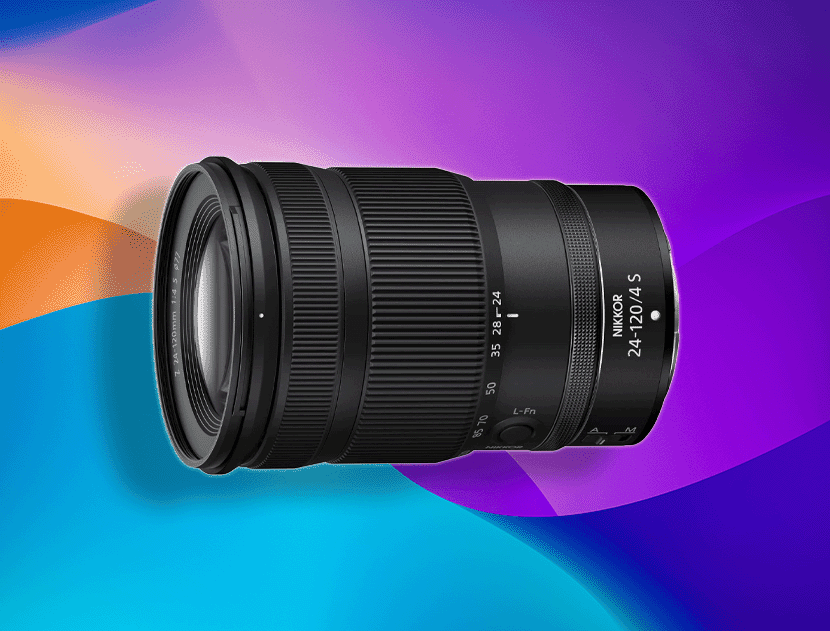
The best Nikon Z lenses are all leading the way when it comes to Nikon’s place in the world of mirrorless lenses. Let’s see how the Nikon NIKKOR Z 24-120mm f/4 S lens compares to the rest of our picks!
The reason why this lens takes the number one slot for a Nikon FX lens for mirrorless cameras is that it has a very flexible focal length as well as all of the high-tech features that come with mirrorless technology.
The focal length of this lens is incredibly flexible. It’s wide enough to handle landscape photography and it’s tight enough to do some pretty decent telephoto work. It’s a great choice if you have a full-frame mirrorless Nikon camera and you want a lens that can handle just about anything.
In order to handle just about anything, this land was made weather-sealed as well as with 7 optical elements and multiple coatings. This means that not only is the glass protected from accidental bumps, but it’s also designed to deliver crystal-clear images.
The unique autofocus system also means that you’ll get a much more quiet autofocus experience than you will with other lenses. This is especially useful if you plan on using this lens for video, shooting at events for weddings, or working with models.
You’ve also got some programmable buttons and a programmable control ring on this lens. It might take some getting used to, but these extra programmable features are actually pretty useful when you’re out in the world taking pictures.
There are some cons to this lens that we need to look at.
The first downside of this otherwise fantastic lens is the f/4 aperture. This is pretty noticeably bad. Especially given how wide this lens can go, we expect to see a little bit faster aperture than f/4.
This means that this lens is going to have the worst performance in low-light conditions as well as be less ideal when it comes to street photography or portraits.
This lens also has fewer features than a lot of the more expensive options. It’s got a budget-friendly price, but you’re definitely going to be trading in some image quality and tech features for those savings.
With all of this considered, this is a great go-to lens if you’re looking to get into the world of mirrorless photography and Nikon has a brand that you want to stick with.
Pros
- Programmable Control Ring & L.Fn Button
- Weather sealed
- 7 optical elements
- Multiple coatings
- Multi-Focus Stepping Motor AF System
Cons
- f/4 aperture
- Fewer features
5. Nikon NIKKOR Z DX 16-50mm f/3.5-6.3 VR Lens: Best DX for Mirrorless (Z lenses)
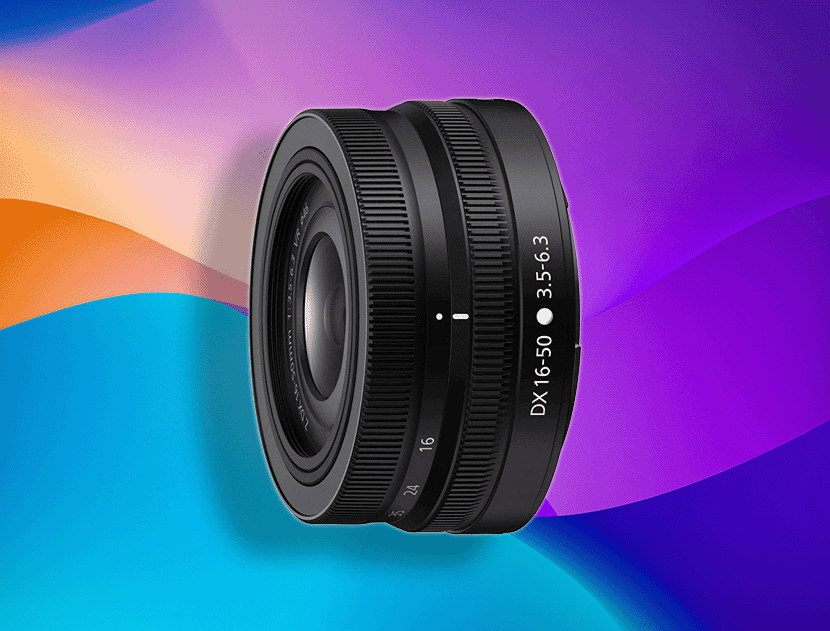
The Nikon NIKKOR Z DX 16-50mm is an ultra-portable lens that makes a great choice for crop sensor mirrorless Nikon cameras. Here’s why you’re missing out if you don’t have this lens ready to go!
The first thing you’re going to notice about this lens is its extremely compact design. This lens is designed to go with the lightweight bodies of mirrorless crop sensor cameras. It’s perfect for slapping on the body of your camera and throwing it in your camera bag when you’re heading out for a walk or on a vacation.
Despite the small size of this lens, it comes packed with features. It’s got 5 optical elements and the super integrated coating that we see on some of Nikon’s best lenses.
This lens also has a vibration-reduction image stabilization system. This gives you an extra hand when it comes to stabilizing your images all shooting on the fly.
This lens also has a flexible focal length. This makes it great for landscape photography, street photography, and even portraits. Depending on the styles of photography are interesting, this is very close to being the perfect vacation lens.
The single biggest downside of this lens is that it is strictly outclassed by other options on this list. Yes, it’s portable and it’s great for your budget, but there are just better alternatives to consider as long as you can spend a little bit extra for a lens.
The biggest competition this lens has is the 24 mm to 70 mm lenses. Those deliver on almost all of the focal lengths that this lens can handle won’t come up but they have much better build quality and take clear pictures.
The aperture on this lens could also be a little bit brighter. It’s not the worst, but there are definitely better options out there especially if you’re looking to take portraits.
This makes a great portable lens for your crop sensor camera, but there are also compelling reasons to pick a more versatile all-in-one lens.
Pros
- Extremely Compact Design
- f/3.5 aperture
- 5 optical elements
- Super Integrated Coating
- Vibration Reduction Image Stabilization
- Great everyday lens
- Budget-friendly
Cons
- Outclassed by other lenses on this list
- Aperture could be brighter
- The 24mm to 70mm lenses are just a better alternative
6. Nikon NIKKOR Z 24-50mm f/4-6.3 Lens: Best Budget Friendly Nikon Lens
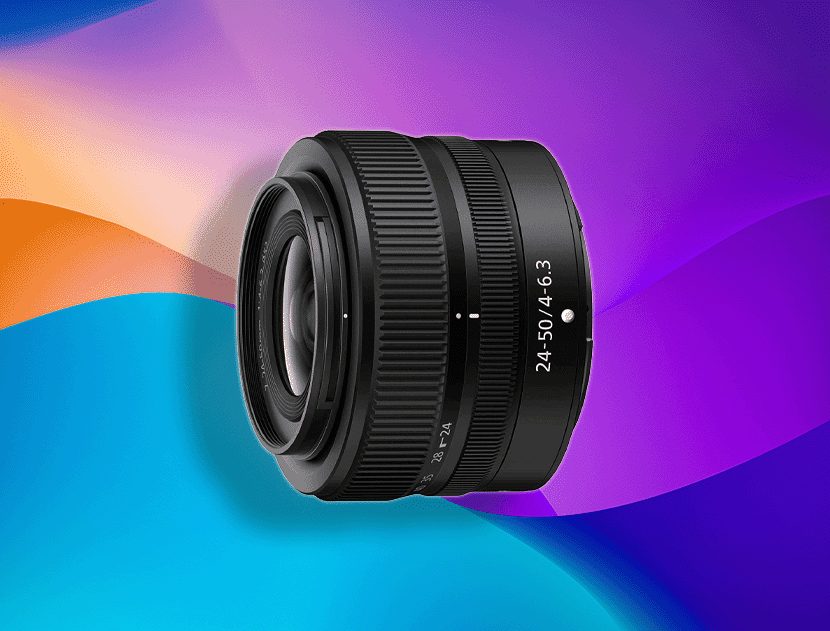
If you’re looking to pick up a Nikon lens on a budget, the Nikon NIKKOR Z 24-50mm lens is the lens that you’ve been looking for. This is one of the best options for getting great images without having to break the bank.
There’s a lot to love about this extremely affordable Nikon lens. The first thing that you’re going to notice is the price tag which is much cheaper than the other lenses on this list.
This lens also has just the right balance of high-end features and affordability. You got a programmable control ring as well as plenty of optical elements that help reduce the distortion in your images.
This lens also has a compact build. This is perfect for photographers who don’t want to haul around heavy lenses all day but still want to capture stunning images.
The autofocus motor is very quiet which is ideal for being discreet while taking street photography pictures.
In order to get these cost savings, we have to make some trades.
The biggest downside to this lens is that it is not weather sealed. This means it cannot stand up to the environment and you run the risk of moisture, dust, and even mold getting inside of your lens.
With that said, this one is still going to be able to stand up to tough shooting conditions. Even though it’s not weather-sealed, you can still buy a cover for your lens to keep the moisture out while shooting in the rain to compensate for this trade-off.
The problem that you won’t be able to compensate for is the awkward focal length. 24 mm to 50 mm is pretty great for everyday photography, street photography, and even some creative portrait or landscape work. However, it’s not the best choice for telephoto photography or other styles.
Another downside to consider is the aperture. It’s not very bright which means you might have some difficulty using this lens when it comes to shooting in low-light conditions like events or weddings.
This is a basic lens that is still packed with some pretty interesting features. If you’re looking to save some money and pick up a new lens for your mirrorless Nikon camera, you should get this lens.
Pros
- Extremely affordable
- Three Aspherical Elements
- Stepping Motor AF System
- Two Extra-Low Dispersion Elements
- Programmable Control Ring
Cons
- Not weather sealed
- Awkward focal length
7. Nikon NIKKOR Z 50mm f/1.8 S Lens: Best Prime Nikon Lens
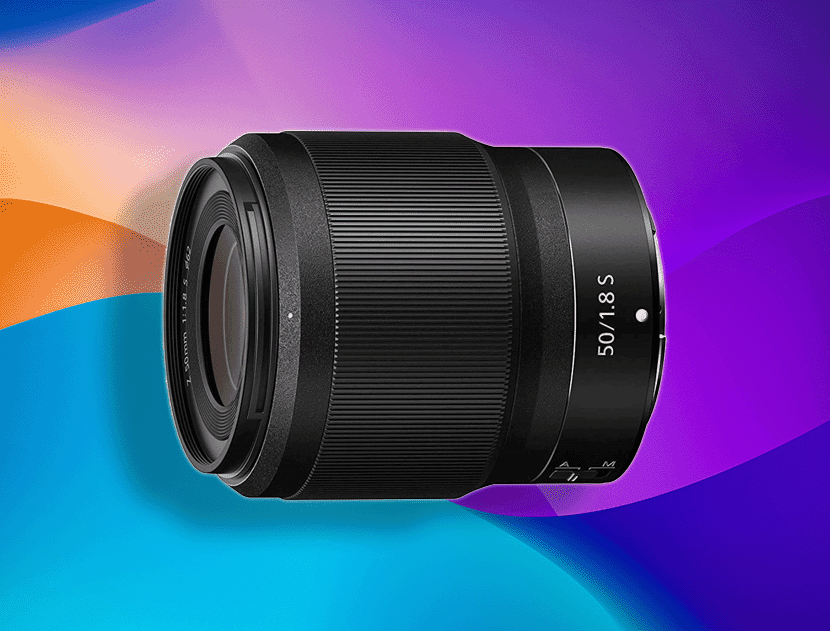
There’s no way we could write a list of the best Nikon lenses and not talk about the Nikon NIKKOR Z 50mm prime lens.
Many photographers agree that your best choice for a prime lens is 50 mm. This is a focal length that is considered to be very natural and similar to what the human eye sees.
This means that it’s going to be a perfect choice for almost every style of photography. This is great when you’re shooting street photography and portraits and even works for video.
The aperture on this lens is also amazing. It’s only beaten by Nikon’s most expensive lenses. It’s bright enough to handle any low-light shooting and deliver amazing bokeh when you’re taking portraits.
That stunning bokeh is aided by the 9-bladed diaphragm which helps produce crystal-clear images.
You’ve also got optical elements reducing chromatic aberration and other distortions in your images. Nikon added two coatings to this lens which also help clear up any pictures you might take.
The 50 mm lens is also perfect for beginners, working photographers, and people looking to Branch out into new styles of photography. 50 mm is easily the most flexible focal length and is a great choice for just about everyone.
However, we do need to talk about one of the biggest trade-offs you’ll make if you pick this lens.
Even though 50 mm is a great focal length for nearly every style of photography, there are a few types of Photography that 50 mm is just not suited for.
If you enjoy taking wide-angle photographs of landscapes and architecture, 50 mm is going to be a difficult focal length to work with. This focal length is often much too tight to do good landscape shops even though you can get creative and work around the tighter focal length.
It can also be challenging to work with his focal length for shooting indoors. 50 mm can be too tight when shooting in cramped apartments or other similar locations.
50 mm also isn’t going to be the right choice if you’re into wildlife for sports photography. You simply can’t get physically close enough to the action to make 50 mm worthwhile for those particular styles.
However, if you’re not into those styles of photography this might be the perfect lens for you.
Pros
- Amazing aperture
- Ideal focal length for most situations
- 9 bladed diaphragm
- Two ED and Two Aspherical Elements
- Nano Crystal and Super Integrated Coatings
Cons
- 50 mm is not right for every style of photography
8. Nikon NIKKOR Z 24-70mm f/2.8 S Lens: Best Nikon Lens for Video
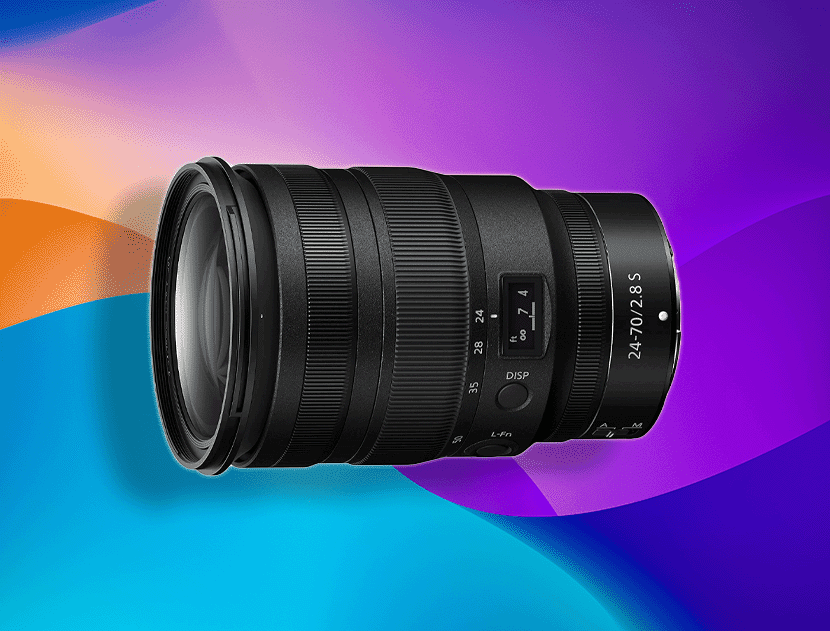
We’re rounding out our list by picking a lens for one of the most popular uses for mirrorless cameras these days. The Nikon NIKKOR Z 24-70mm is our best pick for the video lens for Nikon cameras.
There’s a lot to like about this lens. Everything from that incredibly bright aperture to the feature-packed barrel of this lens adds to its appeal.
This Lens comes with an OLED information panel, a programmable button, and a programmable control ring. These are great options to see as you’re often changing your settings on the fly while shooting video.
This lens also has very quiet autofocus stepping motor. This is perfect for not ruining the audio on your shots and staying focused at the same time.
The focal length of this lens is also incredibly flexible. You can go wide angle with the 24 mm or zoom in for a nice tight close-up with the 70 mm top end.
It’s also good to have a single lens that can handle most shooting situations. This is especially important if you’re going to be out all day doing video for a wedding or another event. You just want to make sure that you’re not weighed down with lenses so you can focus on getting great videos.
This lens also excels at photography which is especially important if you’re looking to offer both photo and video services or switch back and forth between the two.
When it comes to downsides, there are only a few major cons to this lens.
There are better-specialized options out there than this lens. If you know that you’re going to need a lot of wide-angle coverage, you could get a wide-angle zoom instead. The same is true if you know you’re going to be making a lot of telephoto shots.
You can also grab a prime lens if you’re confident you won’t need these zooming features that this lens comes with or the other focal lengths.
The cost of this lens could also be prohibitive depending on what your budget is. This lens is fairly expensive and it might cost more than your Nikon camera.
If you do wind up picking this lens, you’re definitely not going to be disappointed. It delivers outstanding videos as well as pictures. If the stats were a little bit different, this lens could have very well taken the number-one spot.
Pros
- f/2.8 aperture
- Flexible focal length
- Weather-sealed and fluorine coating
- Two ED and Four Aspherical Elements
- Information OLED Panel and L.Fn Button
- Programmable control ring
- Multi-Focus Stepping Motor AF System
Cons
- Better specialized choices
- Cost could be prohibitive
How to Buy The Best Nikon Lenses
Now that you know the best Nikon lenses, how do you pick which one is right for you?
What lens should every photographer have?
Every photographer should have one go-to lens that is flexible enough for all of their day-to-day shooting needs. We recommend a 24-70mm lens as a great all-around focal length for just about every photography style. Of course, you can also go wider or ultra-telephoto for more specific styles of photography.
What is the Holy Trinity of camera lenses?
Have you ever thought about what three lenses should I buy? There are actually three basic types of lenses that every photographer should have in their kit.
You should grab a wide-angle zoom, a normal zoom, and a telephoto lens. This will give you total cover and plenty of flexibility along the way.
We recommend getting a lens that is about 16mm to 35mm, 24mm to 70mm, and 70mm to 200mm. Those are just average benchmarks and there is some wiggle room for you to play with like lenses that cover 16mm to 50mm or even 18mm to 300mm!
Related articles about the holy trinity of Nikon lenses:
Are Nikon lenses as good as Canon?
This question is incredibly complicated. It’s not so much that Nikon and Canon or directly comparable as it is that each of these brands has its own strengths as well as weaknesses.
Canon is still one of the most popular camera manufacturers out there. There are countless lenses available for Canon cameras which gives you more flexibility in terms of what you can buy. Canon also has a reputation that is still synonymous with high-quality photography.
Nikon lenses are definitely not as popular as Canon, but as you’ve seen with a Nikon Noct line of cameras they are at the cutting edge of high-quality features.
What is the difference between FX, DX, and Z lenses?
It can be easy to mix up FX, DX, and Z lenses from Nikon. Getting the wrong lens could mean not being able to take any pictures or being stuck with a more limited focal length range than you had hoped for. Here are the quick differences between these three types of Nikon lenses.
- FX – FX lenses are Nikon’s designation for Full Frame sensor lenses. FX lenses can be any mounting system, but they are always built for full-frame cameras.
- DX – DX is Nikon’s code for crop sensor lenses. These lenses are built for the smaller frames and entry-level pricing of crop sensor cameras whether they are DSLR or mirrorless cameras.
- Z – Z is the mounting system for Nikon’s mirrorless cameras.
- F – F lenses are designed for the DSLR F-Mount system.
Do professional photographers use Nikon or Canon?
Professional photographers can use Nikon or Canon cameras. Both of these brands are more than capable of handling weddings, events, portraits, and every other type of professional photography. Canon might be the more popular of the two, but Nikon is equally capable of taking professional pictures.
Conclusion – Which lenses are the Best Nikon Lenses?
Which of the best Nikon lenses are you getting for your Nikon camera?
Are you going with our top pick, the expensive yet wildly powerful Nikon NIKKOR Z 58mm f/0.95 S Noct lens, or maybe the versatility and video potential of the Nikon NIKKOR Z 24-70mm f/2.8 S lens is more your thing?
Don’t forget the DSLR and DX-format lenses like the Nikon AF-S DX NIKKOR 18-300mm which is a great lens for people shooting with crop sensor cameras.
Let us know which lens was your top pick and make sure to check out our other articles on the best lenses for your cameras!

